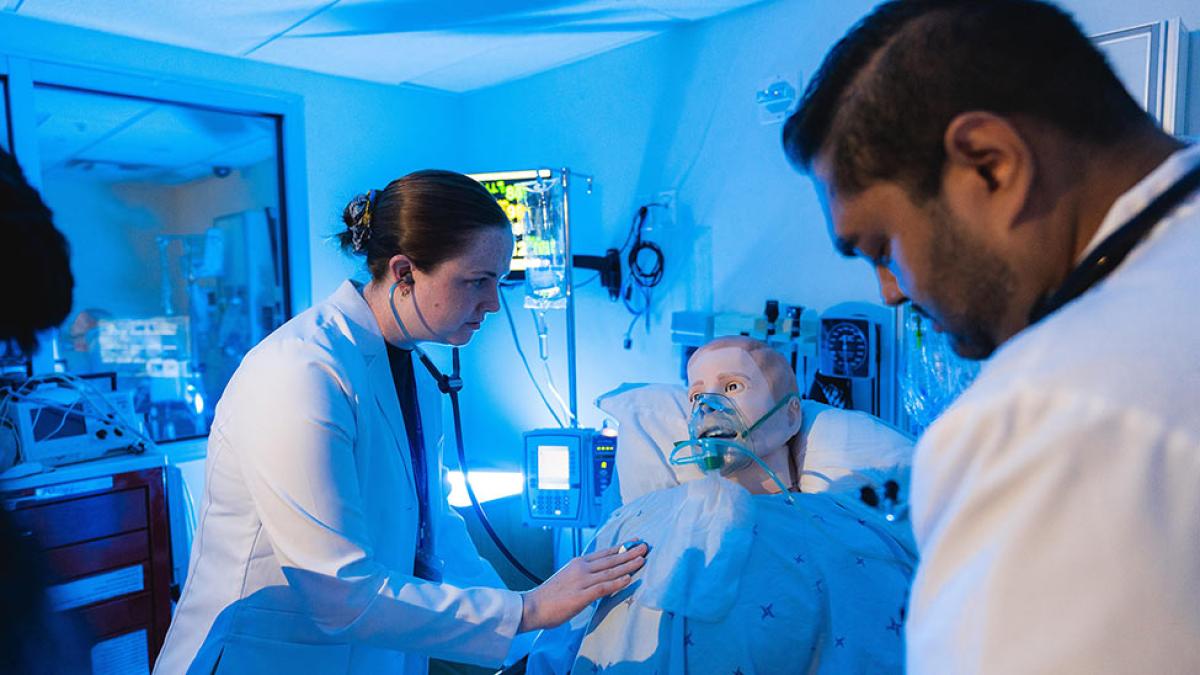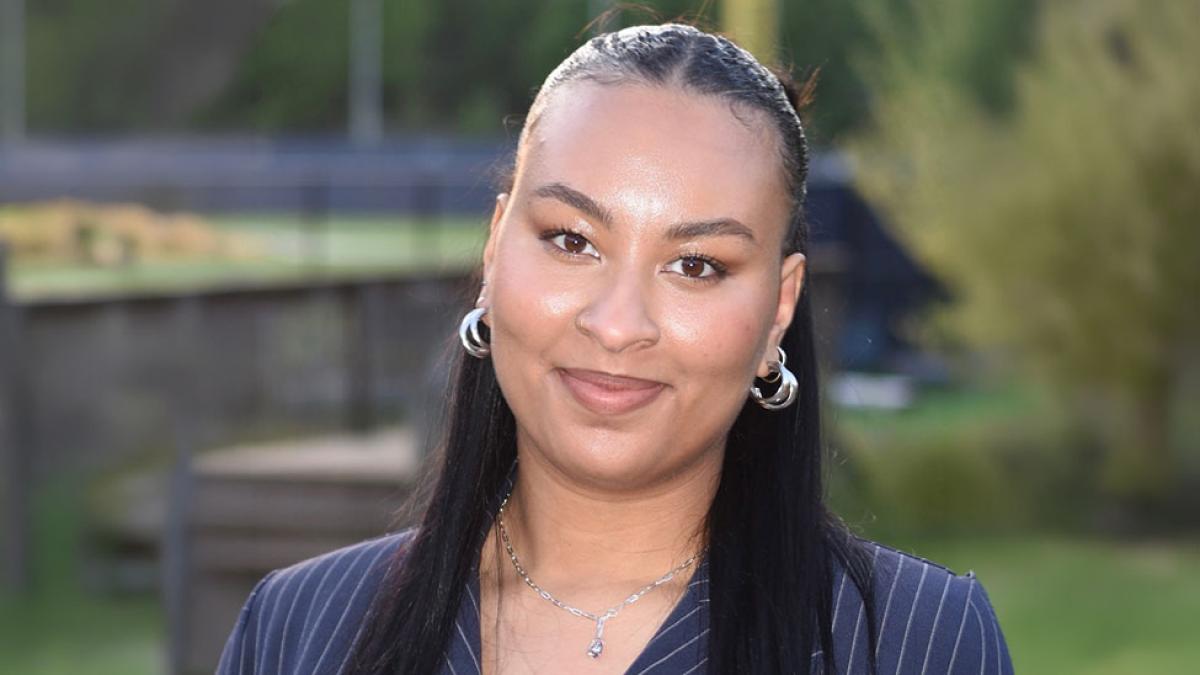From co-founding Women in Lubin to studying business analytics in New York City’s Financial District, Dafina is gaining hands-on experience, building leadership skills, and turning opportunity into impact.
Ready When You Need It: The PEER Program
A few minutes today could make all the difference tomorrow. PEER is a confidential, voluntary program designed to support members of our NYC Campus community who may need assistance during an emergency.
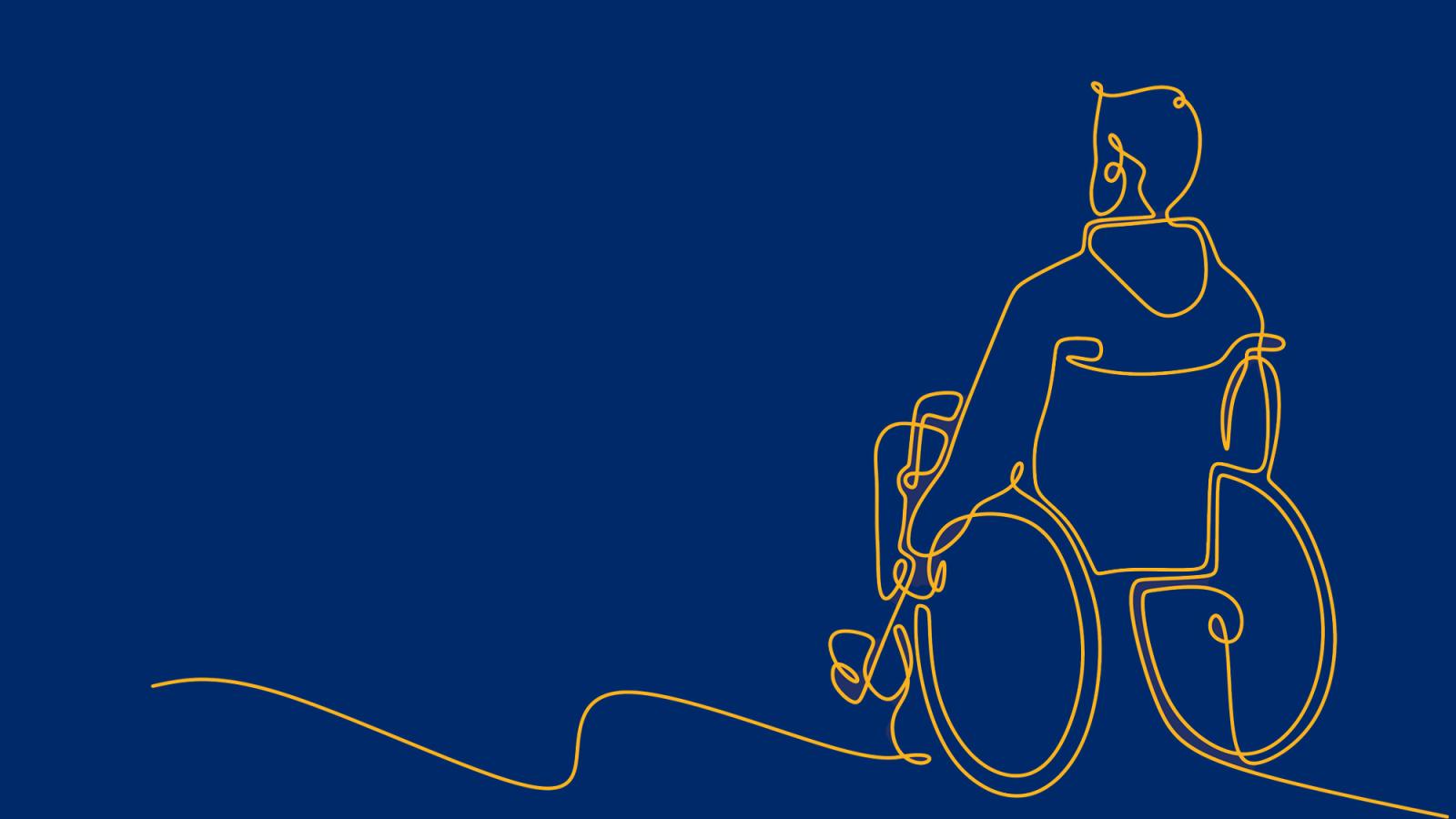
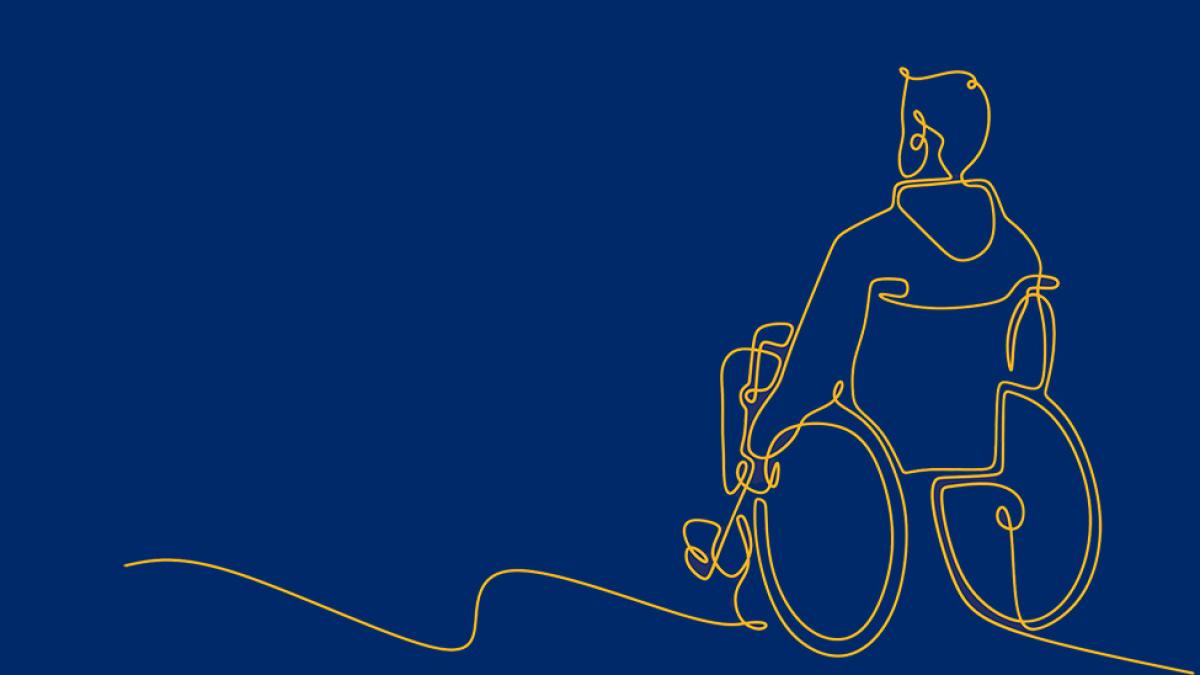
On a campus as busy as ours, most days feel routine. But if an emergency ever interrupts that routine, Pace wants to be ready to support every member of our community.
The Pace Emergency Evacuation Registry (PEER) is a voluntary, confidential program for NYC students, staff, and faculty who may need assistance during an evacuation. Whether you have a mobility limitation, a sensory or cognitive disability, or a temporary medical need like recovering from surgery, PEER helps Safety and Security respond quickly and thoughtfully.
If an evacuation is ordered in your building and you’re enrolled, you’ll receive a text or phone call asking you to confirm whether you’re inside and if you need assistance. From there, staff can coordinate support and, if necessary, share your location with first responders so help reaches you as quickly as possible.
You don’t need to share specific medical details—just the type of assistance you may require. Your information is stored securely, kept confidential, and accessed only during emergencies. And you can update or unenroll at any time.
It takes just a few minutes to register.
More from Pace
New York State Senate Majority Leader Andrea Stewart-Cousins awarded Pace University $2.175 million in funding to support capital improvements and technology upgrades at its Center of Excellence in Healthcare Simulation in Pleasantville.
From undergraduate research to doctoral study, Tinuade McClish ’23 turned her passion for psychology into a clear path forward. Through faculty mentorship, hands-on research, and a close-knit campus community, Pace University helped launch her journey to a PhD.
Press Release: Pace University Celebrates Launch of Gale Epstein Center for Technology, Policy and the Environment
Pace University today celebrated the ribbon cutting and official inauguration of the Gale Epstein Center for Technology, Policy and the Environment at the Seidenberg School of Computer Science and Information Systems, marking a significant expansion of the University’s leadership in environmental technology and policy innovation.
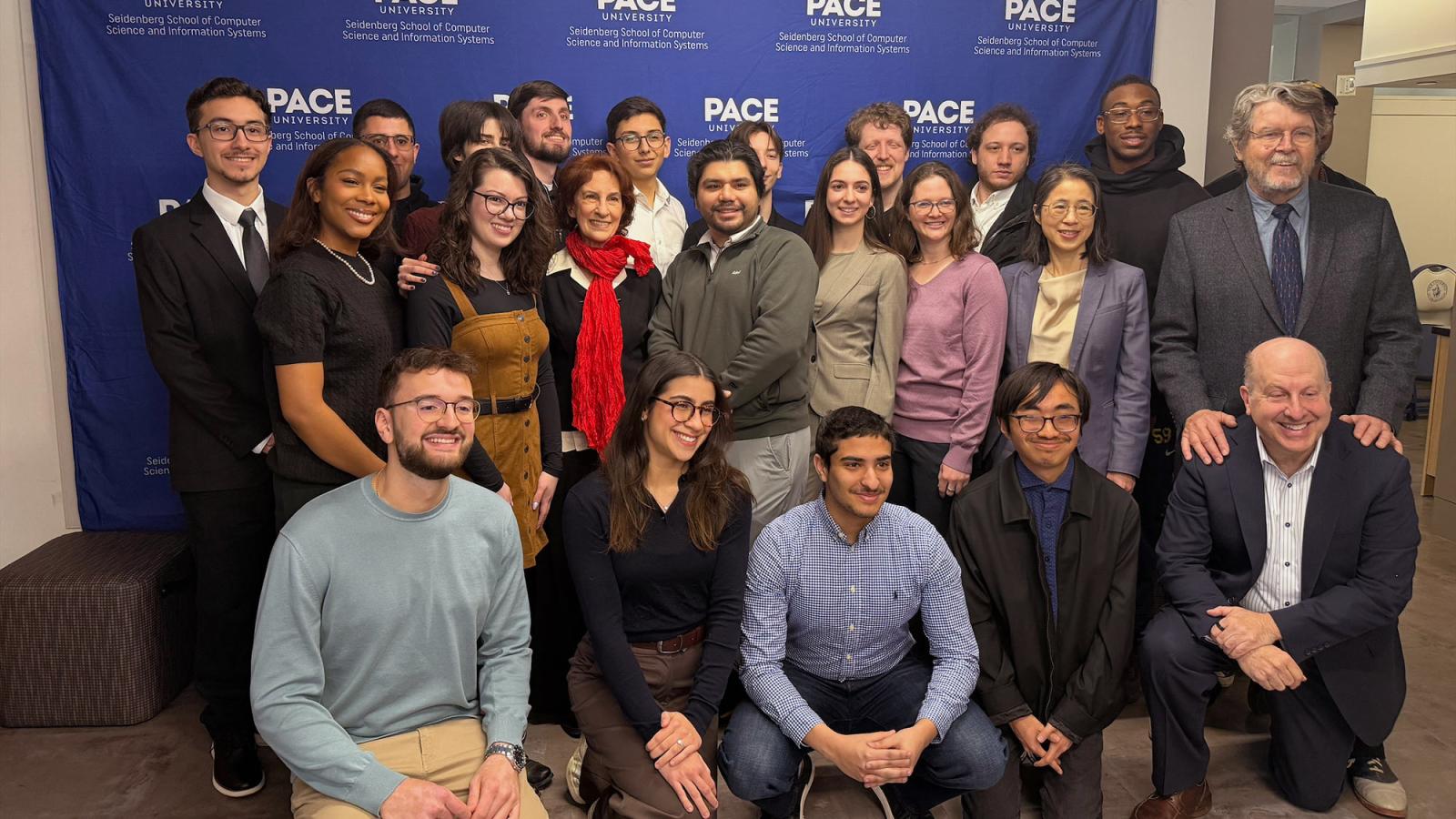
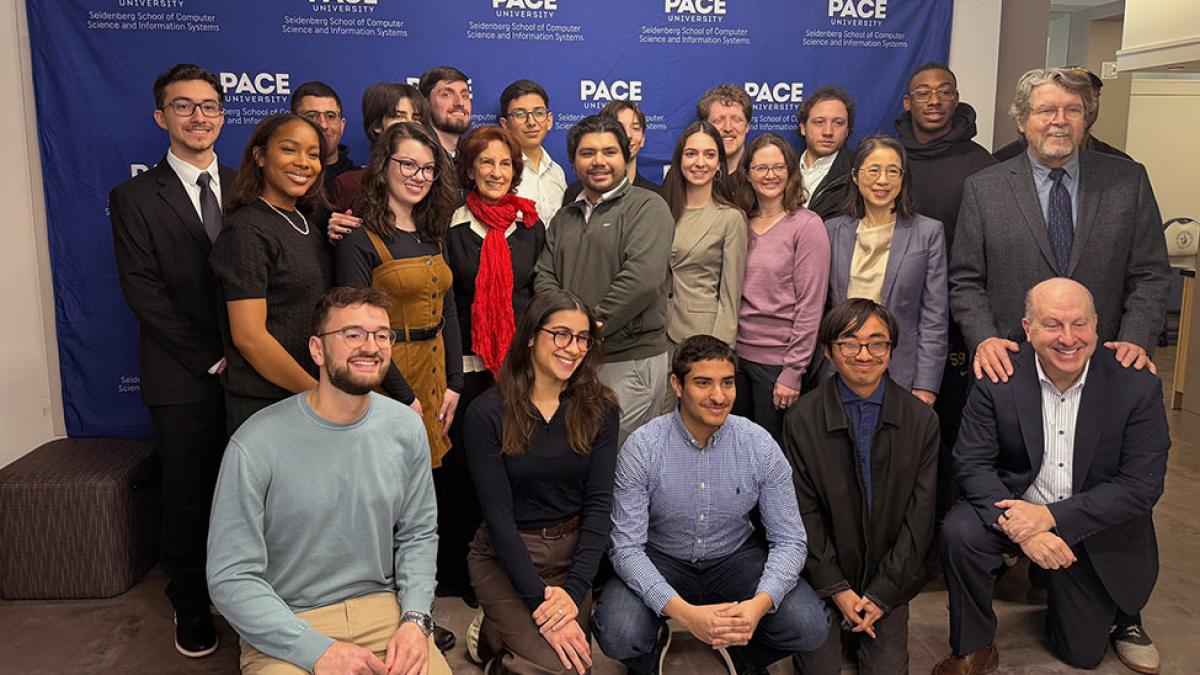
New data lab advances environmental right-to-know through real-time monitoring and public health innovation
Pace University today celebrated the ribbon cutting and official inauguration of the Gale Epstein Center for Technology, Policy and the Environment at the Seidenberg School of Computer Science and Information Systems, marking a significant expansion of the University’s leadership in environmental technology and policy innovation.
The ceremony formally launched the Center’s enhanced data laboratory, which will monitor environmental conditions throughout the region, and promote policy reforms that will assure the public’s right-to-know the quality of the water they drink. Along with an expansive technology lab on the Hudson, the launch signals the next phase of the Center’s mission as a regional innovation hub dedicated to advancing real-time technologies that will advance innovations in information systems and related policy reforms for the protection of human and environmental health.
Made possible by a transformative gift from New York City philanthropist and business leader Gale Epstein, the Center builds upon the success of Seidenberg’s Blue CoLab and expands its work in real-time water monitoring and environmental information systems. Its guiding principle is that informed decision-making about public health requires access to timely, accurate information about environmental conditions.
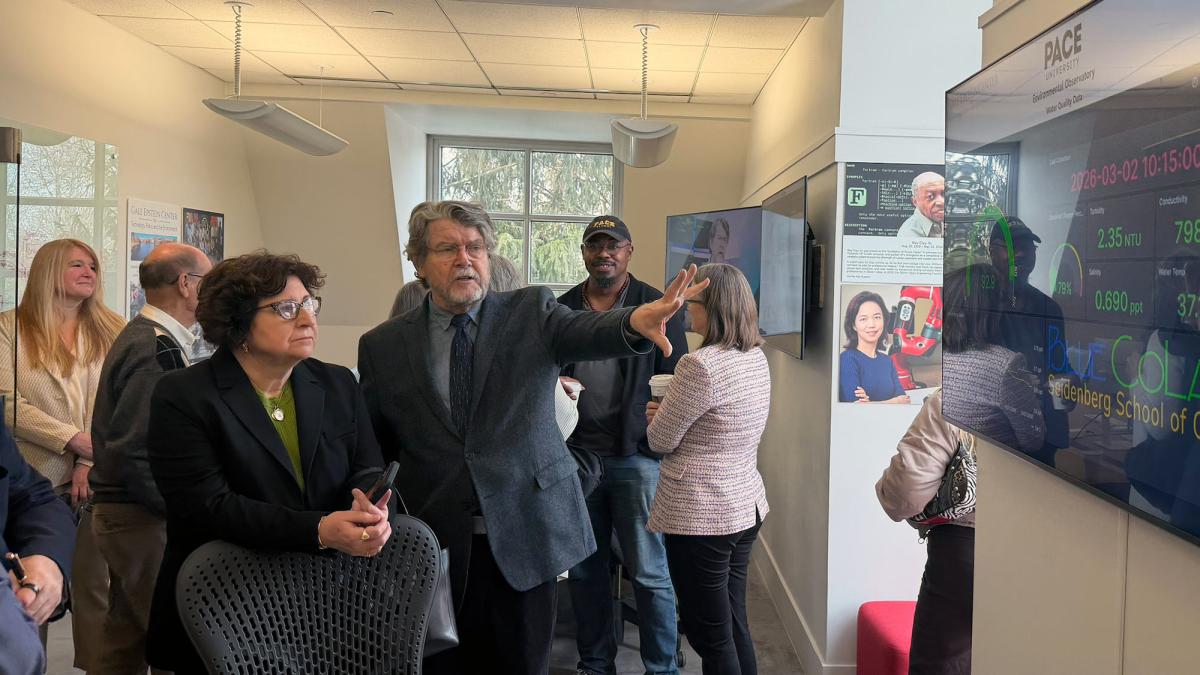
“The Gale Epstein Center represents innovation with purpose,” said Pace University President Marvin Krislov. “We are deeply grateful to Gale for her vision and generosity in making this Center possible. By integrating technology, data science, and policy leadership, the Center strengthens our ability to protect communities and prepare students to solve urgent environmental and public health challenges.”
A central focus of the Center’s work is the development of real-time sensing and alert systems, including drinking water monitoring technologies designed to provide early detection of contamination events. In addition, through applied research, artificial intelligence machine learning applications and experiential learning opportunities, students collaborate with faculty to design and analyze environmental monitoring across the Hudson River region.
Executive Director John Cronin said early warning systems are critical to protecting public health.
“Whether encountering drinking water contamination, climate-related emergencies or emerging pollutants, the public should be alerted to environmental threats immediately,” Cronin said. “The Gale Epstein Center provides the tools and training capacity to develop real-time technologies that will make such warning systems a reality.”
Epstein said the Center reflects a shared commitment to empowering communities through access to environmental information.
“Access to accurate, timely environmental information is essential for the protection of public health,” Epstein said. “I am proud our Center combines technology, education and policy to serve and protect the public good.”
Li-Chiou Chen, PhD, interim dean of the Seidenberg School of Computer Science and Information Systems, said the Center expands opportunities for students to apply emerging technologies to real-world environmental challenges.
“This initiative reflects Seidenberg’s commitment to experiential learning and interdisciplinary collaboration,” Chen said. “Students gain hands-on experience in data analytics, real-time systems and technology policy while contributing to solutions that protect the environment and communities.”
Silas Gonzalez, a sophomore majoring in computer science and law, said the Center has shaped both his academic and professional goals.
“From the moment I began working here, I felt this was where I belonged,” Gonzalez said. “The faculty challenge and support us, and through initiatives like the United Nations Millennium Fellowship, I’ve seen how technology and environmental science can work together to build a better future.”
The Center operates a multidisciplinary program of innovation, training, research and policymaking. Students engage in coursework in real-time instrumentation, technology policy and data analytics, with hands-on learning at Choate Pond, the Ossining Real-Time Tech Hub and regional monitoring sites connected to the Hudson River estuary. Collaborations across the university — including Dyson College’s Environmental Studies and Science Department, the Elisabeth Haub School of Law and the NYC Design Factory — support the Center’s academic and policy initiatives.
In addition to Epstein and Pace leaders, in attendance at Monday’s grand opening were faculty, students, alumni, and supporters of the Center. Assemblymember MaryJane Shimsky, who represents the Pleasantville campus in the New York State Legislature, was also present for the opening of the lab. A reception followed the ceremony, where guests toured the data laboratory and met with faculty and student researchers.
About Pace University
Founded in 1906 and celebrating 120 years of preparing students for success in 2026, Pace University pairs real-life learning with strong academics to launch meaningful careers. With campuses in New York City and Westchester County, Pace serves 13,600 students across a range of bachelor, master, and doctoral programs through the College of Health Professions, Dyson College of Arts and Sciences, Elisabeth Haub School of Law, Lubin School of Business, Sands College of Performing Arts, School of Education, and Seidenberg School of Computer Science and Information Systems.
About the Seidenberg School of Computer Science and Information Systems
The Seidenberg School of Computer Science and Information Systems at Pace University is a leading institute of technology education. Students experience a dynamic and expansive technology education at the undergraduate and graduate levels. One of the first comprehensive schools of computing in the nation, the Seidenberg School is strategically located in the heart of NYC’s tech scene, right on the doorstep of New York’s most promising companies. With access to established tech giants and exciting new start-ups from both the New York City and the Westchester campus, Seidenberg offers the opportunity to connect, intern with, and enjoy lucrative tech jobs following graduation. Through partnerships with leading tech firms, banks, federal agencies, and global institutions, the school’s curricula and programs are designed to ground students in the fundamentals while offering numerous hands-on experiential learning opportunity. The faculty includes numerous experts in artificial intelligence, cybersecurity, data science, game development, software engineering, and much more, who operate labs and centers providing students with practical experience and connections that lead to impressive internships and jobs.
Elisabeth Haub School of Law Hosts 38th Annual Jeffrey G. Miller National Environmental Law Moot Court Competition
The Elisabeth Haub School of Law at Pace University proudly hosted the 38th Annual Jeffrey G. Miller National Environmental Law Moot Court Competition (NELMCC), one of the nation’s largest and most prestigious interschool moot court competitions devoted to environmental law.
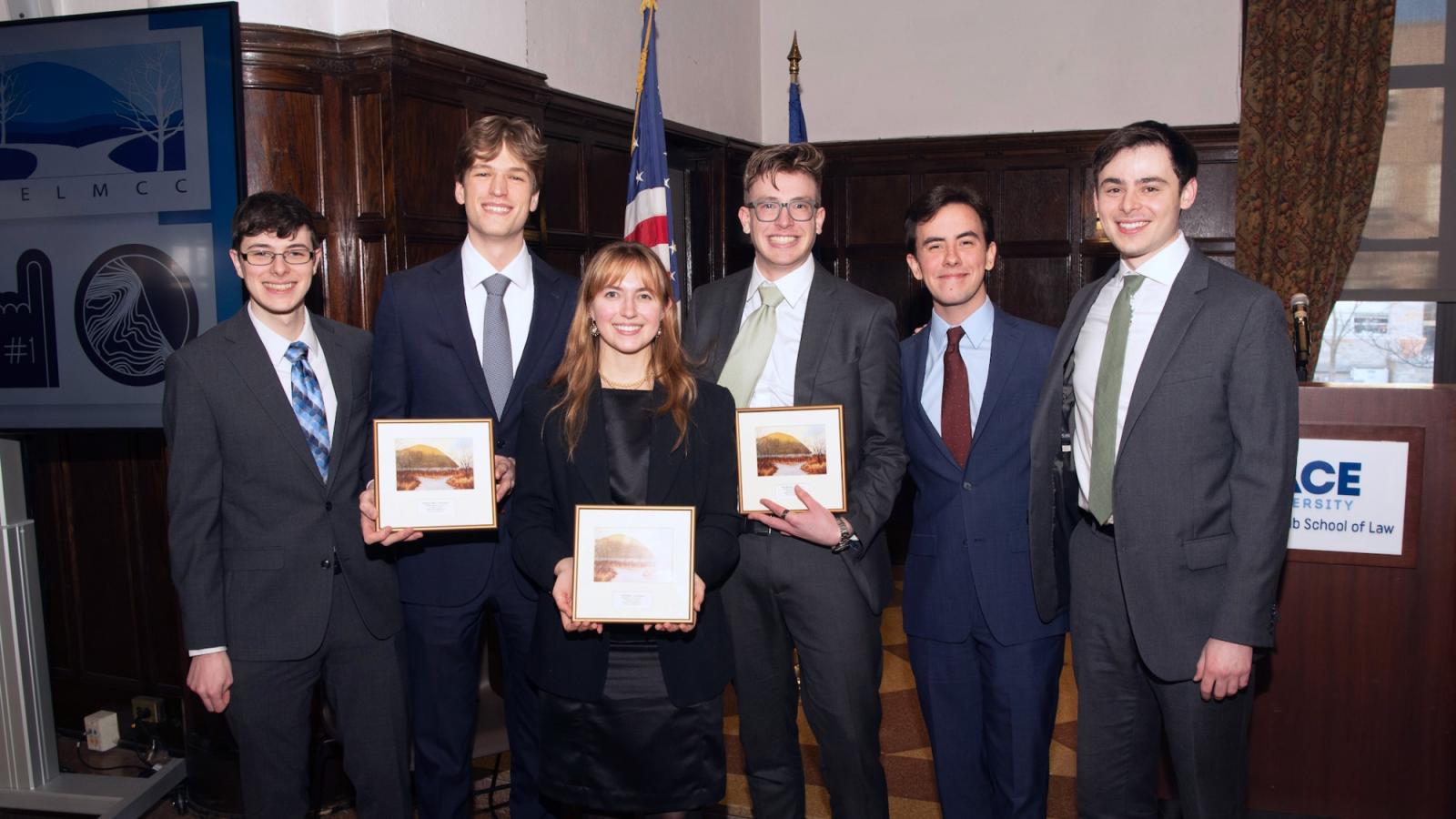
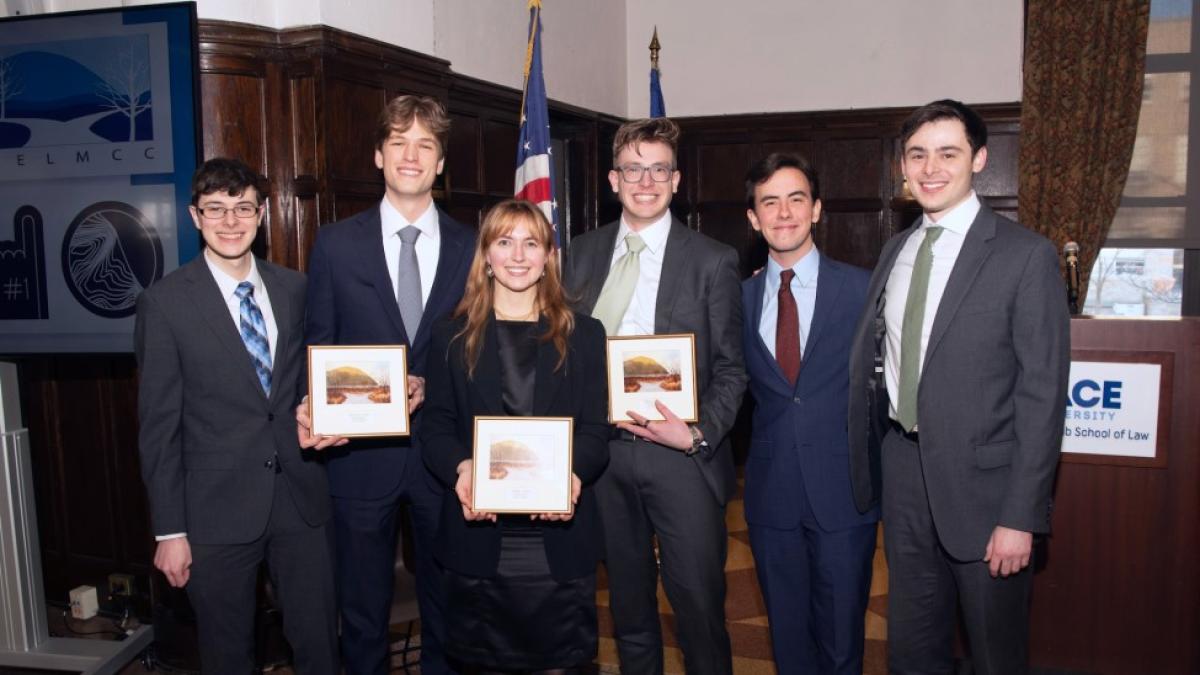
The Elisabeth Haub School of Law at Pace University proudly hosted the 38th Annual Jeffrey G. Miller National Environmental Law Moot Court Competition (NELMCC), one of the nation’s largest and most prestigious interschool moot court competitions devoted to environmental law.
This year’s competition welcomed teams from across the country to Pace Haub Law’s campus for three days of advocacy in front of attorney judges. Since its founding in 1989, NELMCC has set the national standard for excellence in environmental moot court competitions, challenging students to engage with complex and timely issues shaping environmental law and policy.
The 2026 NELMCC Championship title was awarded to Columbia Law School. The two finalist teams were University of Minnesota Law School and Lewis & Clark Law School. All three teams delivered outstanding performances in the final round, which was presided over by an esteemed panel of judges:
- The Honorable Eunice C. Lee, U.S. Court of Appeals for the Second Circuit
- The Honorable Kermit V. Lipez, U.S. Court of Appeals for the First Circuit
- The Honorable Malachy E. Mannion, U.S. District Court, Middle District of Pennsylvania
- The Honorable Joseph A. Marutollo, United States Magistrate Judge, Eastern District of New York
- The Honorable A. L. Merriam, United States Court of Appeals for the Second Circuit
As with every year, the competition was organized and led by Pace Haub Law students. The 2026 NELMCC Board was chaired by Thomas O’Connell, supported by a dedicated student leadership team overseeing hospitality, judging, scoring, fundraising, competition logistics, and more. The 2026 Problem was authored by Professor Todd Ommen, who also serves as Faculty Advisor, with the Bench Memorandum authored by Kiran Chalal, Environmental Law Program Fellow.
“NELMCC represents the very best of environmental advocacy and student leadership,” shared NELMCC Chair Thomas O’Connell. “It was an honor to work alongside such a dedicated board to welcome talented competitors from across the country and esteemed attorney judges. The level of preparation, professionalism, and passion we saw this year truly reflects the strength and future of environmental law.”
Over the course of the three-day competition, lively discussions and panels were also held amongst coaches and judges, an environmental career session was hosted by the ABA Section of Environment, Energy, and Resources, a Law Professor Workshop, as well as a CLE were also held. The Competition ended with a Reception and Awards Ceremony. In addition to the winning teams, awards went to: Julie Lane, Drake University Law School (Best Oralist), Andie Madsen, SJ Quinney College of Law (Honorable Mention for Best Oralist), and American University Washington College of Law (2026 David Sive Award for Best Brief Overall).
The Jeffrey G. Miller National Environmental Law Moot Court Competition is grateful to the organizations and people whose financial support help make the event possible. This year, NELMCC was pleased to have the continued partnership of the American Bar Association (ABA) Section of Environment, Energy, and Resources (SEER) and AlterEcho, who were premier sponsors.
Pace in Pleasantville Receives $2.1M For Healthcare Simulation Center
Pace University in Pleasantville has received $2.1 million in state funding to enhance its Center of Excellence in Healthcare Simulation, boosting training for future healthcare professionals. The investment, highlighted in Westfair Communications, will expand advanced simulation technology, strengthen emergency and labor-and-delivery training, and support increased student enrollment in the healthcare workforce pipeline.
How to, Like, Stop Saying Filler Words
Dyson Professor Heather Hayes speaks with TIME about the impact of filler words like “um” and “uh” on public speaking. Hayes cautions that excessive vocal fillers can cause audiences to perceive a speaker as less prepared or less confident, noting that such habits may distract listeners and weaken a message’s effectiveness.
State Funding Strengthens Healthcare Workforce Pipeline at Pace University
Pace University’s healthcare workforce pipeline also received a significant boost, with more than $2.1 million in state funding secured by Majority Leader Andrea Stewart-Cousins to enhance the Center of Excellence in Healthcare Simulation in Pleasantville. Coverage in News12 highlights how the investment will expand advanced simulation technology, strengthen emergency and labor-and-delivery training, and support enrollment growth for future healthcare professionals.
Changing to This Diet at 45 May Add Up to 4 Years to Your Life
CHP Professor Christen Cooper is featured in Prevention, discussing research showing that adopting a healthier diet after age 45 can add years to life expectancy, particularly through plant-forward eating patterns rich in whole foods.
Transforming Healthcare Education: Majority Leader Andrea Stewart-Cousins Awards $2.175 Million to Enhance Pace University’s Simulation Labs
New York State Senate Majority Leader Andrea Stewart-Cousins recently allocated $2.175 million to Pace University. This funding aims to upgrade the Center of Excellence in Healthcare Simulation in Pleasantville. The center is crucial for training the next generation of nurses and healthcare professionals.
Pace University To Host 12th Annual Broadway Stage Management Symposium
Broadway World reports that the Sands College of Performing Arts will host the 12th Annual Broadway Stage Management Symposium this May on the Lower Manhattan campus. The outlet also highlights that The 24 Hour Plays Nationals will return to Pace this summer, bringing early-career theater artists to campus for its nationally recognized professional development program.
Rye City Council to Vote on $285K Contract for New Comprehensive Plan
The Land Use Law Center at Pace University is featured in MyRye.com for co-leading public engagement in Rye’s new Comprehensive Plan — the city’s first major planning update in nearly 40 years. The Center will help guide community input as Rye develops its long-term framework for housing, infrastructure, and environmental resilience.

